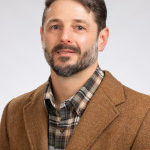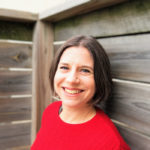
- This event has passed.
Communicating the Climate Crisis – Effective Messaging & Dispelling Disinformation
August 12, 2022 @ 11:00 am - 11:45 am EDT
A recap and video of this event is available here.
Please join us on Friday, August 12, for a discussion on effectively communicating the climate crisis, the history of misinformation about climate change, and how to inoculate against climate disinformation. We will be joined by Dr. Edward Maibach, a distinguished Professor and Director of George Mason University’s Center for Climate Change Communication, Dr. David Benac, an associate professor of environmental history at Western Michigan University, and Dr. Anne Armstrong, co-author of Communicating Climate Change: A Guide for Educators.
About the speakers:
 Dr. Edward W Maibach is a distinguished Professor and Director of George Mason University’s Center for Climate Change Communication. Edward co-directs the Climate Change in the American Mind polling project (with Yale’s Anthony Leiserowitz), is principal investigator of Climate Matters—a climate reporting resources program that supports TV weathercasters as local climate educators, and he helps direct the Medical Society Consortium on Climate and Health—an educational initiative that currently involves 37 national medical societies.
Dr. Edward W Maibach is a distinguished Professor and Director of George Mason University’s Center for Climate Change Communication. Edward co-directs the Climate Change in the American Mind polling project (with Yale’s Anthony Leiserowitz), is principal investigator of Climate Matters—a climate reporting resources program that supports TV weathercasters as local climate educators, and he helps direct the Medical Society Consortium on Climate and Health—an educational initiative that currently involves 37 national medical societies.
In 2018, Ed was appointed a Fellow of the American Association for the Advancement of Science. In 2020, Ed was awarded the Beck Family Presidential Medal of Excellence in Research and Scholarship—Mason’s top research honor—as well as the Stephen H. Schneider Award for Outstanding Climate Science Communication (with Anthony Leiserowitz). In 2021, Ed was identified by Thompson Reuters as one of the world’s 10 most influential scientists working on climate change.
 Dr. David Benac is an associate professor of history, Public History Coordinator, and history internship supervisor at Western Michigan University. His research, at the intersection of environmental and public history, investigates how individuals and communities develop cultural ties to environments (built, natural, and landscape) and how these connections emerge in grassroots activism.
Dr. David Benac is an associate professor of history, Public History Coordinator, and history internship supervisor at Western Michigan University. His research, at the intersection of environmental and public history, investigates how individuals and communities develop cultural ties to environments (built, natural, and landscape) and how these connections emerge in grassroots activism.
 Dr. Anne Armstrong has a professional background in environmental education and is the lead author on Climate Change Communication: A Guide for Educators (Cornell University Press, 2018). Her research areas include climate change communication, environmental education, and how urban environmental stewardship and positive youth development build identity and empower youth to contest place stigma.
Dr. Anne Armstrong has a professional background in environmental education and is the lead author on Climate Change Communication: A Guide for Educators (Cornell University Press, 2018). Her research areas include climate change communication, environmental education, and how urban environmental stewardship and positive youth development build identity and empower youth to contest place stigma.







